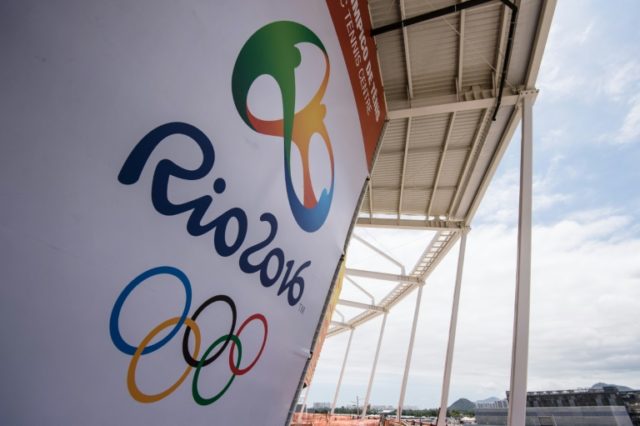VIENNA (AFP) – The IAAF Council met in Vienna on Friday to decide if doping-tainted Russia has done enough to rejoin world track and field’s governing body in time for its athletes to compete at the Rio Olympics.
The 27-member IAAF Council will vote on whether to readmit Russia under the presidency of Sebastian Coe, himself the target of allegations that he enlisted the help of the fugitive son of disgraced predecessor Lamine Diack to secure his election last year.
Coe is expected to give a press conference at the Grand Hotel Wien at 1500 GMT.
Other issues to be discussed during the extraordinary Council meeting include whether to allow Yuliya Stepanova, the 800m runner turned doping whistleblower to compete at the Olympics independent of Russia.
And the Council must also vote on whether to give champion paralympic long jumper Markus Rehm of Germany the green light to compete against able-bodied rivals at the Olympics.
Rehm, who lost his lower right leg in a wakeboarding accident as a 14-year-old, hopes to become the second athlete with a prosthesis to compete at both the Olympics and Paralympics after South African runner Oscar Pistorius ran in the 400m and 4x400m relay at the 2012 London Games.
But Russia is the big issue, with any decision carrying enormous ramifications for the Olympics.
The IAAF provisionally suspended the All-Russian Athletic Federation (ARAF) in November over a bombshell report by a World Anti-Doping Agency (WADA) independent commission that said there was state-sponsored doping and mass corruption in Russian athletics.
Coe has previously stressed that the ban will only be lifted if there is clear evidence of a “verifiable change both in anti-doping practice and culture”.
The ban has already been extended once, in March, and following the latest damning WADA report released on Wednesday, the likelihood of Russia’s immediate reinclusion looks remote.
WADA’s new report said hundreds of attempts to carry out drug tests on Russian athletes this year had been thwarted, with drug testers facing intimidation and threats from armed Russian security forces while athletes continued to evade doping control officers.
The WADA summary, which was compiled with the help of UK Anti-Doping, said more than 736 tests between February 15 and May 29 were declined or cancelled for a variety of reasons ranging from sample collection to athlete whereabouts.
Russian Sports Minister Vitaly Mutko has wavered between contrite apology and brash counter-attack as Moscow lobbies heavily for its reinclusion in time for the Rio Games.
“At the end of the day we have fulfilled all the criteria, everything that they demanded of us. All the athletes are under control,” a defiant Mutko said on Thursday.
“There were 100 criteria presented to us, and in my opinion we have fulfilled them all.”
– IOC compromise? –
The International Olympic Committee (IOC), which organises the Olympics although track and field is still sanctioned and run by the IAAF, is to meet in Lausanne on June 21 on eligibility issues.
And it has been suggested that it could offer a face-saving option for all parties involved by opening up participation in Rio for certain doping-vetted Russian athletes.
“It’s a plausible option,” French athletics federation president and IAAF Council member Bernard Amsalem told AFP.
Russian Olympic Committee head Alexander Zhukov said there were about 100 track and field athletes on Russia’s Olympic team and barring them from Rio would be a “blow to the Olympic movement”.
“The Olympic Charter is based on the premise that everyone should participate,” Zhukov said, expressing hope that the IAAF would make an “objective, balanced decision”.
Russian athletes have criticised the blanket federation ban, saying clean competitors should not assume collective responsibility.
Mutko spoke of the “constant pressure now on the commission and the IAAF Council”, and also hinted at possible legal action should Russian athletes not be reinstated.
But John Coates, president of the Australian Olympic Committee and an IOC vice president, said Russia’s anti-doping agency and athletics body had been “rotten to the core”.

COMMENTS
Please let us know if you're having issues with commenting.